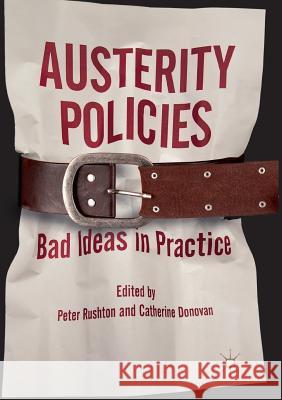Austerity Policies: Bad Ideas in Practice » książka
topmenu
Austerity Policies: Bad Ideas in Practice
ISBN-13: 9783030077310 / Angielski / Miękka / 2019 / 280 str.
Kategorie:
Kategorie BISAC:
Wydawca:
Palgrave MacMillan
Język:
Angielski
ISBN-13:
9783030077310
Rok wydania:
2019
Wydanie:
Softcover Repri
Ilość stron:
280
Waga:
0.35 kg
Wymiary:
21.01 x 14.81 x 1.57
Oprawa:
Miękka
Wolumenów:
01
Dodatkowe informacje:
Wydanie ilustrowane











